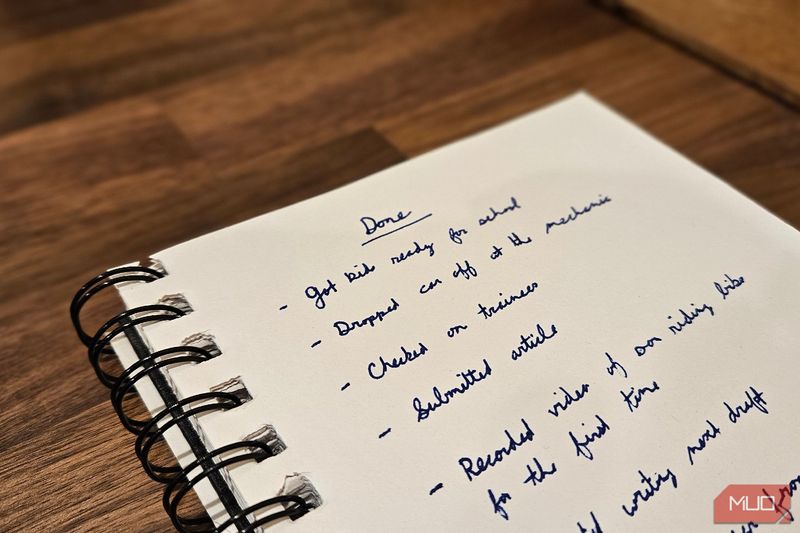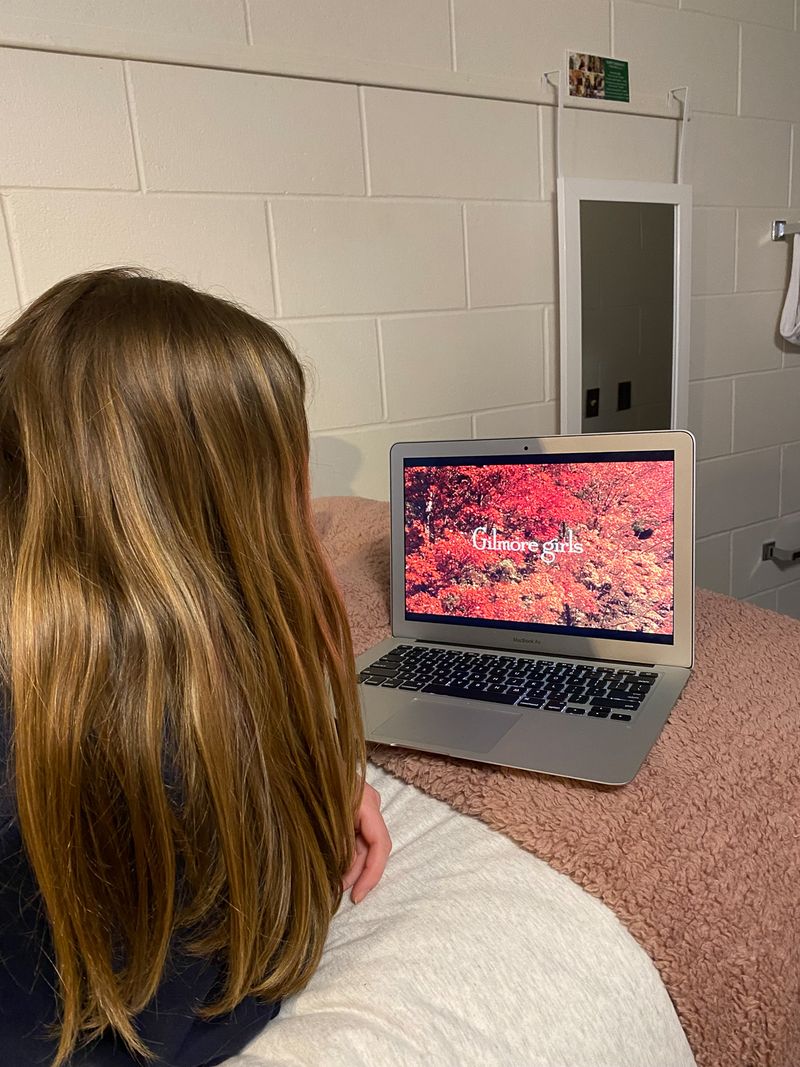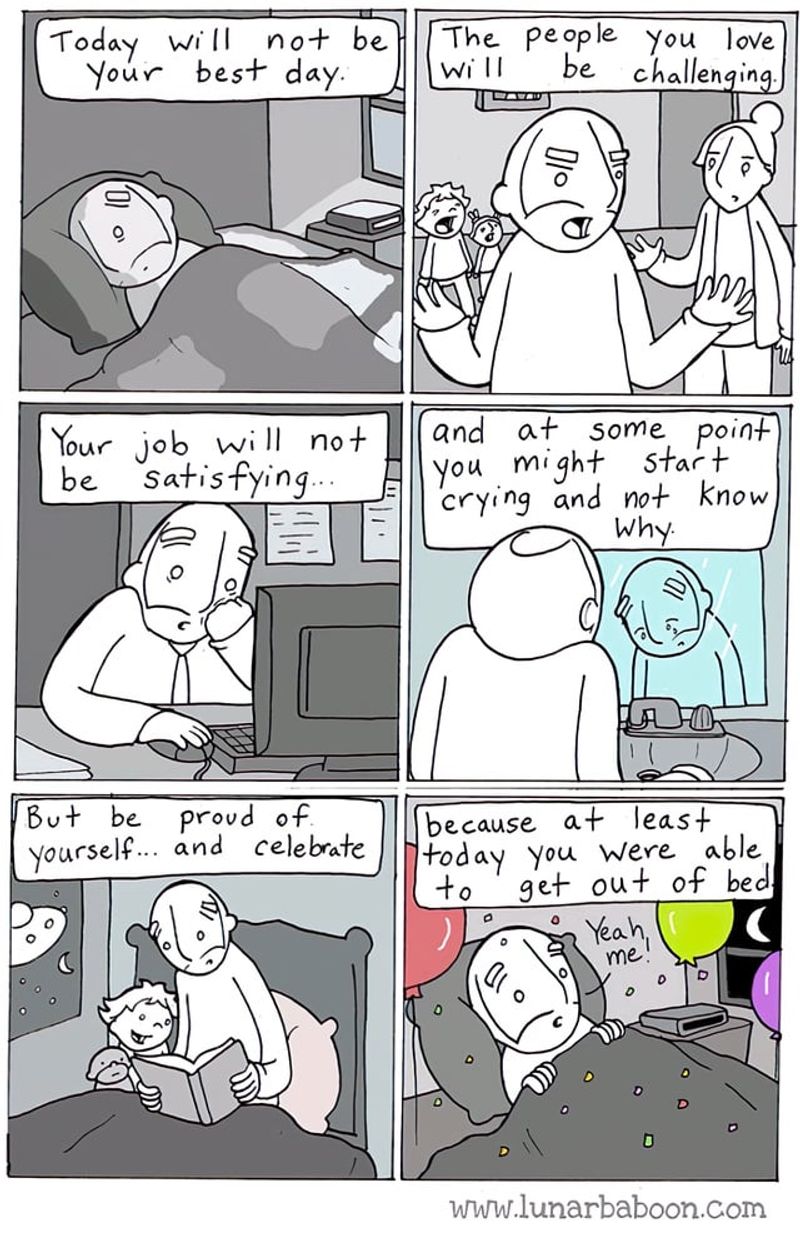16 Tiny Habits That Actually Improved My Life When I Was Really Depressed
When you’re deep in depression, even brushing your teeth can feel like climbing a mountain. You don’t need a 10-step routine or a transformation.
You need small, doable things that don’t feel like a threat. These habits didn’t “fix” me—but they helped me keep going. Here are 16 things that actually helped—when nothing else did.
1. Making my bed—even just pulling the blanket up

With a gentle pull of the blanket, I gave my day a starting point. This simple act of making my bed, albeit imperfectly, whispered quiet order into the chaos within. The subtle neatness lent a sense of accomplishment, a tiny victory against the looming disorder of my mind.
Each morning, the act felt like a signal—a promise of fresh beginnings, no matter how small. Even when the world outside felt daunting, here was a corner I could control, a piece of calm amidst the storm.
The ritual of folding and smoothing brought a peace that lingered. A made bed wasn’t merely decor; it became a sanctuary. It symbolized that despite the heaviness in my heart, I could still create a semblance of peace.
2. Opening the blinds—even if I didn’t go outside

Light filtered through the cracks in the blinds, casting gentle patterns on the walls. Opening them, even just halfway, let the outside world trickle in. Though I might not venture beyond my door, the sun’s warmth reminded me that life continued beyond my window.
The soft glow transformed my space, turning shadows into whispers of hope. It was as if each ray carried a quiet encouragement, urging me to breathe, to exist, to feel.
Letting the light in became a ritual of its own—a testament to the small ways in which I could let the world touch me, softly, without overwhelming. It was an invitation to see the beauty that lingered, even in stillness.
3. Brushing my teeth—even when I didn’t leave the house

With each deliberate brushstroke, I reminded myself of my own worth. Brushing my teeth became more than routine; it was an affirmation—a message whispered to my reflection that I still mattered.
In those moments, the minty freshness was a small rebellion against the heaviness that sought to weigh me down. It was a ritual of care, a way to nurture the self that seemed to fade on dark days.
Even when leaving the house was an insurmountable task, this act connected me to a sense of normalcy. It was a quiet reminder that caring for myself, even in the smallest ways, was an act of defiance against the shadows.
4. Sitting in silence for five minutes without judging myself

In the quietness, I found a strange comfort—a space where judgment melted away. Sitting in silence, without the burden of expectation, offered a respite from the noise within my mind.
This wasn’t meditation or a practice in mindfulness; it was simply allowing myself to be. For those few minutes, the world paused. I granted myself permission to just exist, without the need to fix or improve.
The silence held a gentle power. It was a space for breathing, for being, for recognizing that in stillness, there was no failure, only presence. And in that presence, I found an unexpected solace.
5. Switching from caffeine to water once a day

Swapping caffeine for water, even if just for one drink a day, was a quiet shift that rippled through my anxiety. The hydration brought clarity, a gentle clearing in the fog of my thoughts.
Water became a soothing presence, a simple choice that whispered self-care. It reminded me that small changes could hold profound impacts, that caring for my body was a kindness I could offer myself.
The act of choosing water was a moment of empowerment. It spoke of a promise to nurture, to heal, and to honor the quiet needs of my being. In each sip, there was a step toward finding balance.
6. Listening to music with no lyrics

Melodies without words became a refuge, a soundscape that offered my mind a break. In instrumental music, I found an escape—a place where my thoughts could wander without constraint.
Without lyrics to interpret, the music became a canvas for my emotions. It was a gentle companion, a balm for the restless chatter that filled my head, providing a momentary haven from the chaos.
The notes became stories of their own, weaving soft narratives that soothed and uplifted. In their simplicity, they allowed me to drift, to find peace in the spaces between sounds.
7. Texting one person “thinking of you” with no expectation

Reaching out with a simple message, “thinking of you,” created a bridge to connection. It was a small act, free of expectation, yet it carried a profound sense of belonging.
This gesture of reaching out wasn’t a plea for reciprocation. Instead, it was an offering—a way to touch someone’s life softly. The act held a quiet power, a reminder that I was part of a web of relationships, even in solitude.
Sending these words became an affirmation of connection, a way to weave threads of care into the fabric of my days. It was a gentle reminder that connection could be simple, yet deeply meaningful.
8. Wearing actual clothes—even if no one saw me

Dressing up, even when the world wouldn’t see, offered a whisper of humanity. It was a subtle shift that carried an unexpected weight—an act that told me I was still here, still worthy of care.
Clothes became a gentle armor against the day’s heaviness. They were a reminder that I could embrace myself, even when the world felt distant. The fabric against my skin told stories of self-respect, of nurturing the person I was beneath.
In those moments, it wasn’t about fashion. It was about reclaiming a sense of self, a piece of my identity that depression had tried to erase. And in every stitch, there was a quiet strength.
9. Saying no to plans without guilt

Declining invitations became an act of self-preservation. Saying no, without the burden of guilt, was a newfound freedom—a way to honor my limits and prioritize my well-being.
The initial pangs of guilt were fierce, yet slowly, the power of “no” became apparent. It was a declaration that my energy was precious, that I was allowed to conserve it for what truly mattered.
In saying no, I was choosing to give myself grace, to respect the boundaries that kept me whole. This simple word became a shield, a protection against the world’s demands, and a testament to the value I placed on myself.
10. Keeping a “done” list instead of a to-do list

Turning my focus from “to-do” to “done” shifted my perspective. Creating a “done” list celebrated the small victories that often went unnoticed—a mantra of achievement in the mundane.
Each crossed-out task was a testament to my perseverance, a reminder that progress looked different in times of struggle. The list became a visual representation of my efforts, a tangible proof that I was moving forward.
It was a gentle nudge towards self-compassion, a practice of acknowledging what I had accomplished rather than what I hadn’t. In celebrating these moments, I found a quiet pride in my resilience.
11. Standing outside for 30 seconds—even just on the porch

Stepping outside, even if just for a moment, felt like a breath of fresh air—literally and figuratively. The world seemed to pause as I stood there, letting the crispness of the air wrap around me.
Nature whispered its secrets, reminding me of the vastness beyond my struggles. Standing there, I was a part of something bigger, a fleeting moment of connection with the earth beneath my feet.
In those thirty seconds, I found a semblance of peace, a small resurgence of energy. It was a reminder that even brief encounters with the world outside could ignite a spark of life within.
12. Watching the same comforting show over and over

Familiar storylines became a source of solace, a cocoon of comfort in an unpredictable world. Watching the same show repeatedly was like returning to an old friend, a constant in the chaos.
The predictability offered a refuge, a space where I didn’t need to engage or think too hard. I could let the narrative wash over me, a gentle lullaby that reassured me I wasn’t alone.
Each episode was a reminder of stability, a place where I could retreat without fear of unexpected twists. It was a small certainty in a sea of unknowns, a reminder that familiarity held its own kind of healing.
13. Saying “this is temporary” out loud—even when I didn’t believe it

Words became anchors in the storm, even ones I struggled to believe. Saying “this is temporary” out loud was a mantra—a promise to myself that no feeling was forever.
Though doubt often accompanied the words, speaking them held power. It was an assertion of hope, a gentle reminder that change was possible, even if it felt distant.
The phrase became a lifeline, a whisper of possibility. In declaring it, I planted seeds of resilience, a testament to the strength that lay within. It was a small light in the darkness, a guide through tumultuous times.
14. Letting dishes pile up—and not shaming myself for it

Letting go of perfectionism was a radical act of self-kindness. Allowing dishes to pile up, without the weight of shame, was a declaration of priorities—grace came first.
In those moments, I learned that productivity didn’t define my worth. The dishes could wait; my mental health took precedence. It was a practice in releasing the grip of guilt that often accompanied undone chores.
Accepting that some days, survival was the goal, offered a freedom I hadn’t known. It was a testament to the importance of self-compassion, a gentle reminder that imperfection was human.
15. Celebrating the fact that I got out of bed

Getting out of bed was an achievement worth celebrating. On challenging days, it was a victory against the inertia that sought to keep me down.
The act of rising was a declaration—a statement that I was here, ready to face whatever the day held. It was a recognition of courage, a salute to the effort required just to stand.
In those moments, I learned to honor every step, no matter how small. The simple act of getting up became a beacon of hope, a reminder that each day held potential for renewal.
16. Letting people help—without trying to earn it

Allowing help without feeling the need to earn it was a lesson in vulnerability. Receiving support became a practice of acceptance, an acknowledgment that I didn’t have to navigate alone.
Every act of help was a gift of care, a reminder that I was loved without condition. It was a lesson in humility, an understanding that asking for support wasn’t weakness but strength.
Letting others in, without the burden of reciprocity, became an act of trust. It was a testament to the healing power of community, a quiet acceptance that I was deserving of love and assistance.







